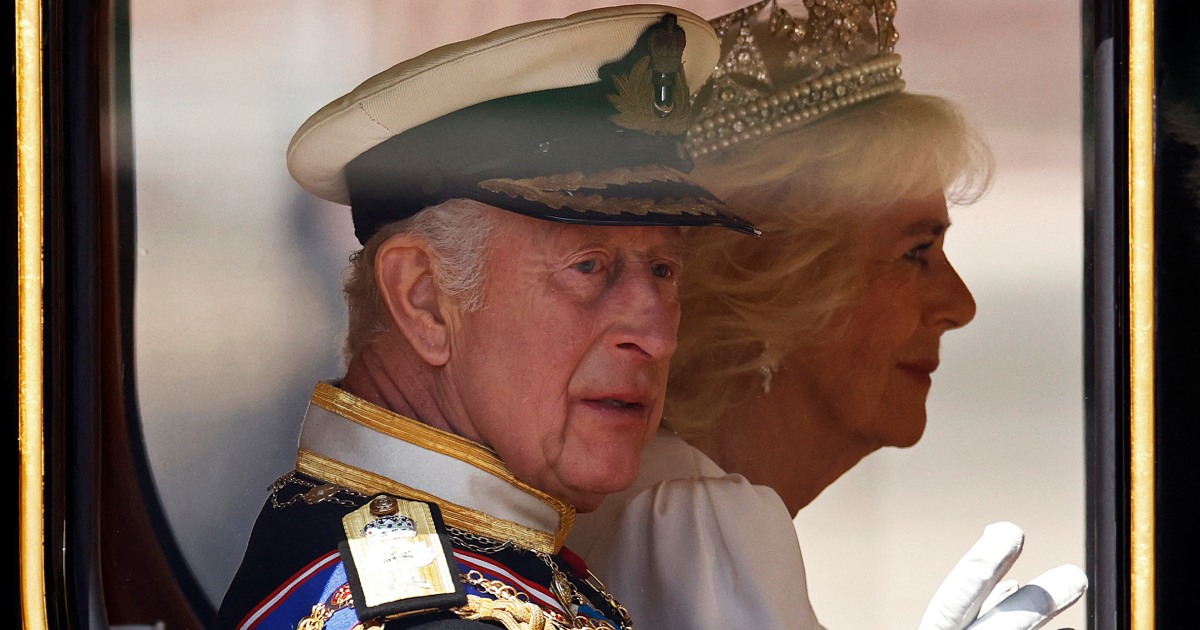spoiler
LONDON — King Charles III's monarchy is set to receive a pay rise of more than 45 million pounds ($60 million), with a 53% jump in its official annual income, accounts show, as Britain grapples with a spiraling cost of living crisis.
The Sovereign Grant, the mechanism used to fund royal spending, will rise from over 86 million pounds ($110 million) in 2024-25 to around 132 million pounds ($170 million) in 2025-26, because of a surge in profits from the Crown Estate, a vast collection of land and property across the U.K.
Funded by the taxpayer, the Sovereign Grant is used to support the official duties of the monarch and other costs such as official travel, thousands of engagements, staff for working royals and the maintenance of occupied palaces.
It is based on a proportion of profits from the Crown Estate, which is independently run and has assets worth billions of pounds, including some of London’s most expensive real estate.
A separate report from the Crown Estate on Wednesday showed that it had generated profits of 1.1 billion pounds, or $1.4 billion.
The Sovereign Grant is funded by the taxpayer in exchange for the king’s surrender of the revenue from the Crown Estate. The royal household had been receiving 25% of the Crown Estate’s profits until it was agreed last year that the funding would be cut to 12%.
But it will still receive a significant boost in funding for 2025-26, largely due to Crown Estate profits. The report said it had seen a “year of record results driven by decades of investment in offshore wind, combined with a diverse and resilient property and land portfolio.”
Part of the funding increase will help finance the final stages of a 10-year, 369 million pound ($475 million) “reservicing” of Buckingham Palace, a project that is now in its eighth year, said the annual report about the Sovereign Grant, published Tuesday.
The king also installed solar panels at Windsor Castle and increased the use of sustainable aviation fuel for royal flights. The royal household will take delivery of two new helicopters in the coming year to replace aging aircraft, it said, noting that their use was a “key component of delivering engagements by His Majesty, as Head of Nation, and other members of the Royal Family.”
The grant is reviewed every five years, and is expected to next be reviewed through legislation in 2026-27 to keep funding for the royal family at an “appropriate” level.
In addition, the king receives income via the Privy Purse from the Duchy of Lancaster, a landed estate, while the Prince of Wales receives the net profits from the Duchy of Cornwall.
Both are independently audited, according to a research briefing on the finances of the monarchy published last week on the British House of Commons Library’s website. It added that the king also receives private income from investments and inherited wealth, which is not made public, leading some critics to suggest that royal finances are “shrouded in fog.”
While there is no legal obligation for the king to pay taxes, the British monarch, previously the late Queen Elizabeth II, and their heir has voluntarily paid income tax since 1993 on income from the duchies and earnings from personal investments, the research briefing said.
Around 600,000 pounds ($775,275) from the sovereign grant for the year 2023-24 was spent on the king’s coronation and events surrounding the historic moment, according to the breakdown of finances in the report, which spans a difficult 12 months for the royal family, when both Charles and Kate, the Princess of Wales, were diagnosed with cancer.
News of the monarchy's expected funding increase nonetheless drew backlash on social media, with Kevin Maguire, the associate editor of the left-leaning tabloid The Mirror, saying on X that there was "no cost of living squeeze for indulged King Charles."
“The Monarchy is a ripoff. King Charles getting £45m richer off backs of British people in midst of foodbanks, spiraling cost of living crisis, broken NHS, deepening child poverty etc is morally bankrupt & disgusting,” author Shola Mos-Shogbamimu said in a post on X.
For years, Britain has been plagued by a spiraling cost-of-living crisis, with real wages flatlining for a decade, leaving the U.K.'s average salary at just £29,669, or $38,000, as prices for utilities and food have soared.
Government figures show 30% of children are growing up in poverty and Britain has the worst rate of homelessness in the developed world, according to the Organization for Economic Cooperation and Development.
The economy and inflation were among the top issues fueling the Labour Party's landslide victory in a general election this month, ending the Conservative government's 14-year rule.
Graham Smith, who leads the anti-monarchy campaign group Republic, in a statement drew a comparison with Ireland’s head of state, President Michael Higgins, who he said came at “a fraction of the cost for someone doing a similar job,” but was “elected and accountable to do it.”
“We do not owe the royals a living, we do not owe them palatial homes, private helicopter travel or lives of leisure and luxury,” he said.



Wait, this old fuck is still alive?
Technically, yeah probably.
I really thought this was announcing his death for a second.
I got so excited.